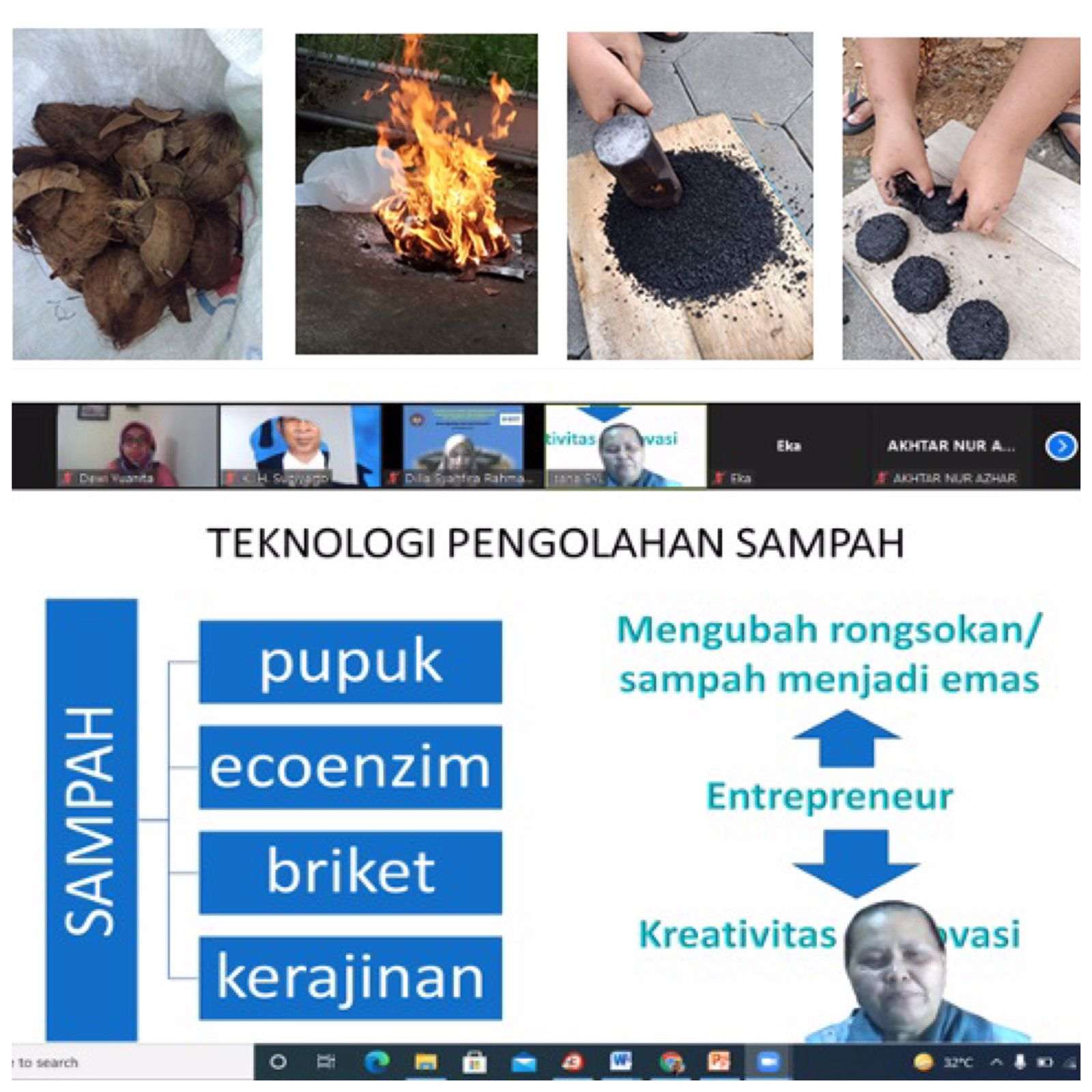You are here
TRAINING FOR PROCESSING WASTE INTO FUEL BRICKET

The problem of waste is a common problem that is still often found in the surrounding environment and must be addressed carefully. The waste problem occurs because of the imbalance between waste generation and its management. One of the places that generate a lot of waste is the market. Related to this, the Community Service Team from the Department of Chemistry Education UNY consisting of Dr. Isana Supiah YL, Prof. KH Sugiyarto, PhD, Sulistyani, MSi and assisted by students Zahra Yuriatma, Dilla Syahfira Rahmadani and Yuliari Suprihatin carried out training on processing waste into briquettes. fuel as an effort to increase economic value during the pandemic. The training was carried out online to traders at Sambilegi Market, Maguwoharjo Village, Kapanewon Depok, Sleman Regency.
The training activity on Waste Processing into Fuel Briquettes as an Effort to Increase Economic Value in the Pandemic Period was held on October 24, 2021. In the training activity, Prof. K.H. Sugiyarto, Ph.D explained the material on the impact of landfills on health and the environment, while Dr. Isana Supiah YL explained the material on waste processing technology into ecoenzymes and Sulistyani, M.Si explained material on the manufacture and analysis of the waste briquette business. In addition, the training participants carried out independent practice of making waste briquettes in groups and the service staff monitored the sustainability of the program. In his remarks, the manager of the Sambilegi Mujiyana Market, said that this training activity is expected to provide broader insight for market traders so that they can manage waste into products of economic value.
Some of the waste in the market is organic waste containing cellulose such as coconut shell residue, corn cobs, fish bones, vegetable and fruit residues so that they have the potential to be converted into charcoal and can be used as fuel. By managing the waste generated from trading activities in the market into fuel briquettes, it not only has an impact on increasing market cleanliness but can also have an impact on the economy, traders can use the briquettes produced for cheaper household energy sources and can also increase their income. with the entrepreneur of making fuel briquettes.
Information System
Kontak Kami
Program Studi Kimia
FMIPA Universitas Negeri Yogyakarta
Kampus Karangmalang Yogyakarta 55281
Telp. (0274)586168 Pes. 115
Email: kimia@uny.ac.id atau s1kimia@uny.ac.id
Copyright © 2026,
